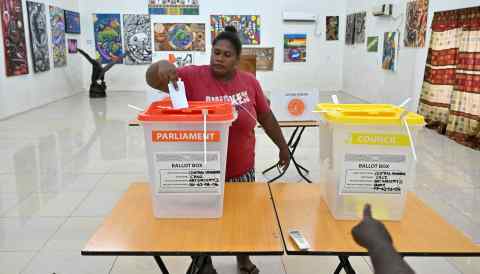KHON KAEN, Thailand -- When a deadly bomb exploded at Erawan Shrine in the heart of Bangkok on Aug. 17, Thailand's interim Prime Minister Prayuth Chan-ocha initially suggested an anti-government group based in the country's northeast could be to blame. Known as Isan, Thailand's most populous region is widely seen as a hotbed of anti-Bangkok sentiment although in practice, resistance since the May 2014 military coup has been extremely muted.
"Everything is okay, professor. We are now entering the 'era of Lao civilization' (yuk lao siwilai)," a middle-aged man patiently explained to me a few weeks ago. People in this so-called red-shirt community -- named for the signature color of supporters of former Prime Mininster Thaksin Shinawatra -- in the northeastern province of Khon Kaen seem deadly serious about this fabled apocalyptic scenario. Bangkok and the whole of the central plains will soon be under water, they say, thanks to climate change. Korat (or Nakhon Ratchasima) will become a port city, and the Thai capital will move up to Khon Kaen, near Thailand's northeastern border with Laos.


